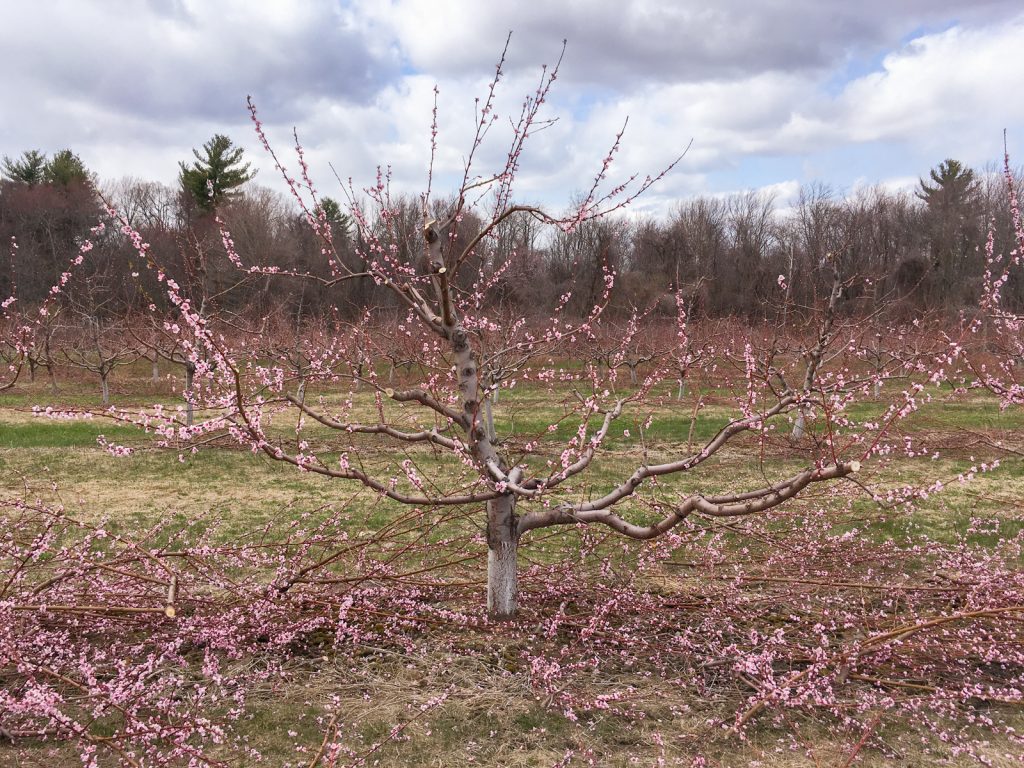
Like many of you, I’ve been doing a lot of walking in the past eight weeks. One route takes me past an orchard. Two weeks ago, the peach and nectarine trees were just coming into bloom, bringing a pale pink hue to the fields. When I turned the corner toward the orchard a few days ago, the scene was shocking. Branches covered with pink buds lay in piles under the trees. By the thousands.
It was pruning season.
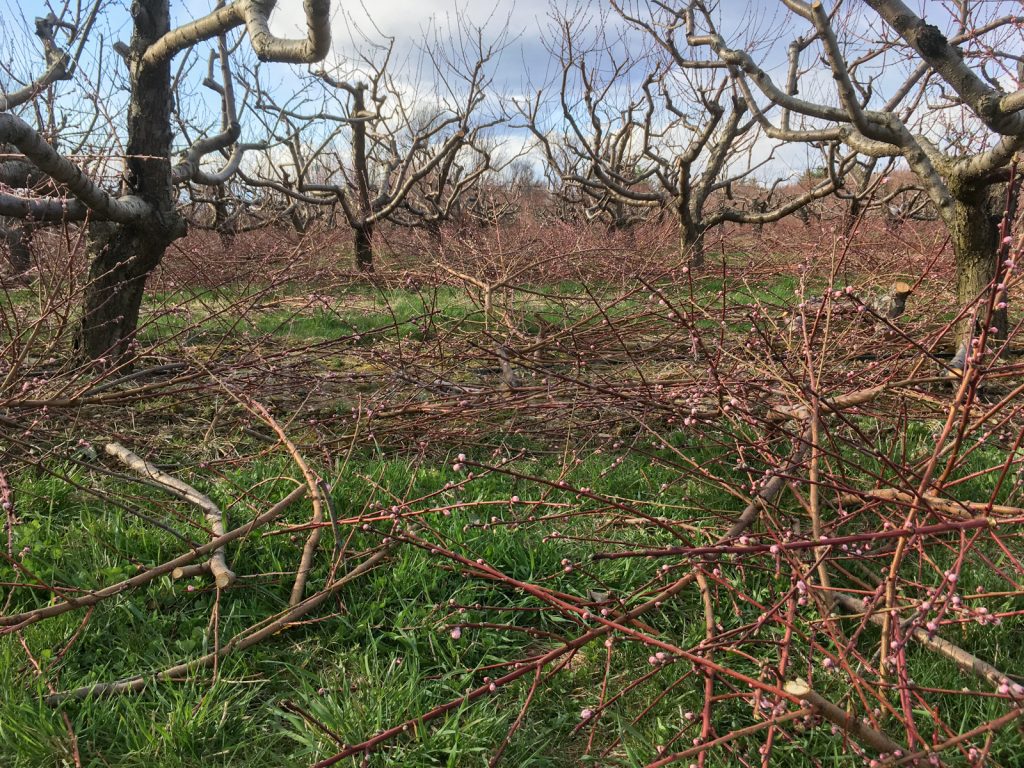
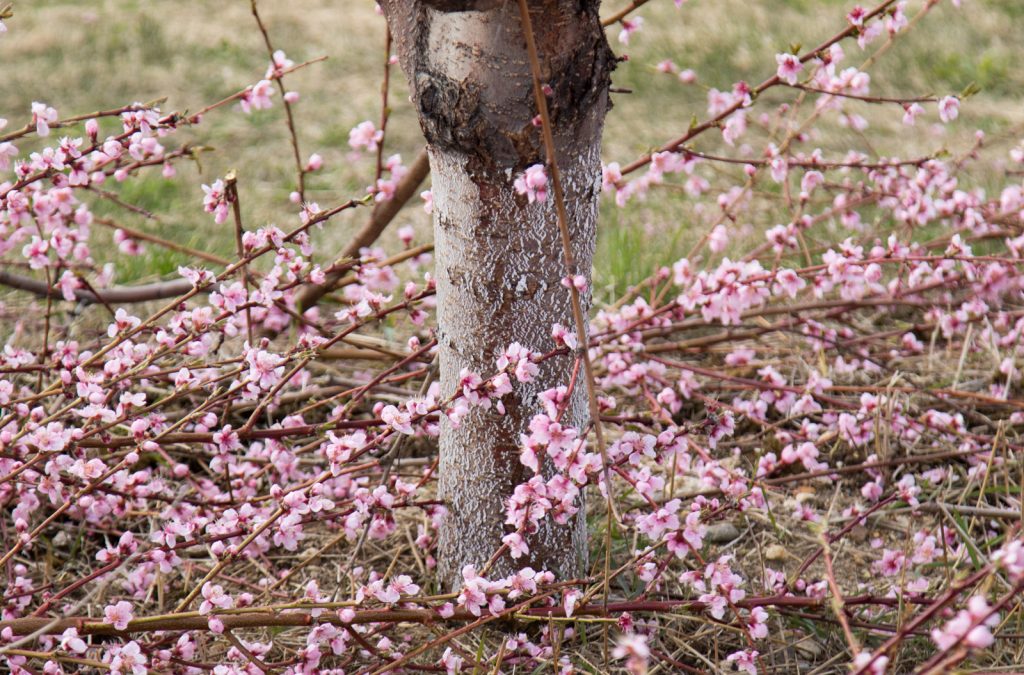
The young trees had been cut back by at least a third. They looked scrawny and naked. Since the arborists were working, I ventured in hoping to learn why they deemed it necessary to trim them so severely. Fruit trees are high maintenance, especially in a region like New England where our winters are severe, our springs are sometimes non-existent, and summer rains are unpredictable. Fruit trees are vulnerable to pests and disease, which is part of why organic orchards are rare here. Additionally, fruit-bearing trees send out a lot of shoots. Too many shoots and branches block sunlight from hitting the tree’s trunk which ultimately impedes growth and potentially limits the tree’s longevity. Bottom line? Arborists prune the trees in order to maximize their potential.
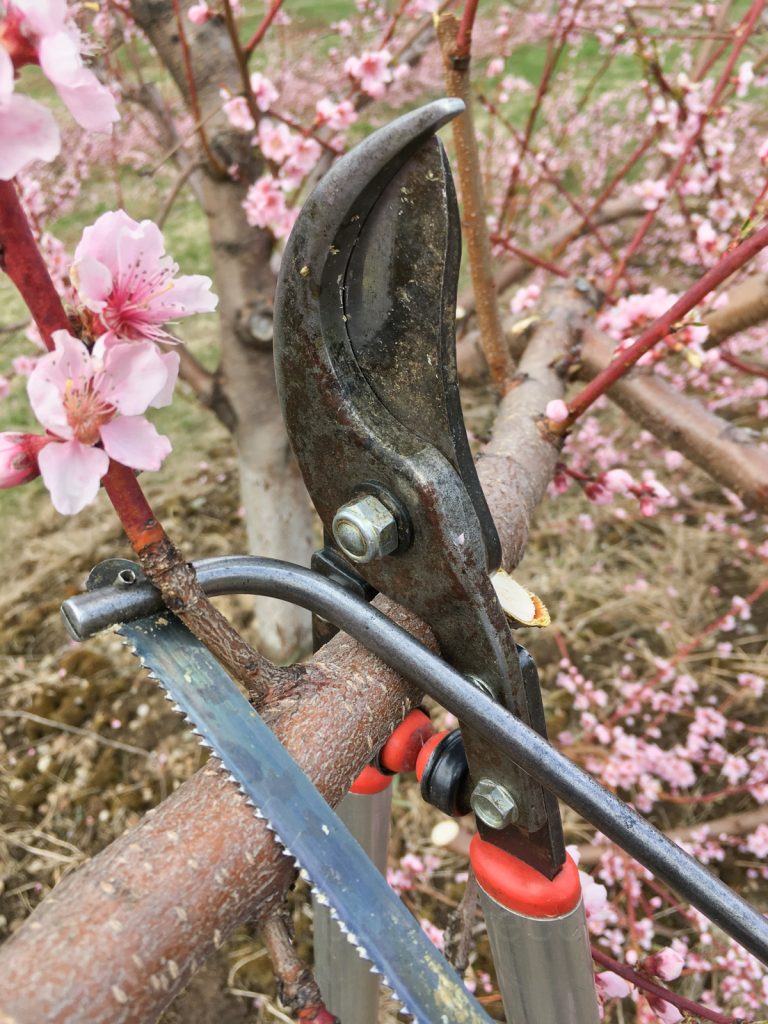
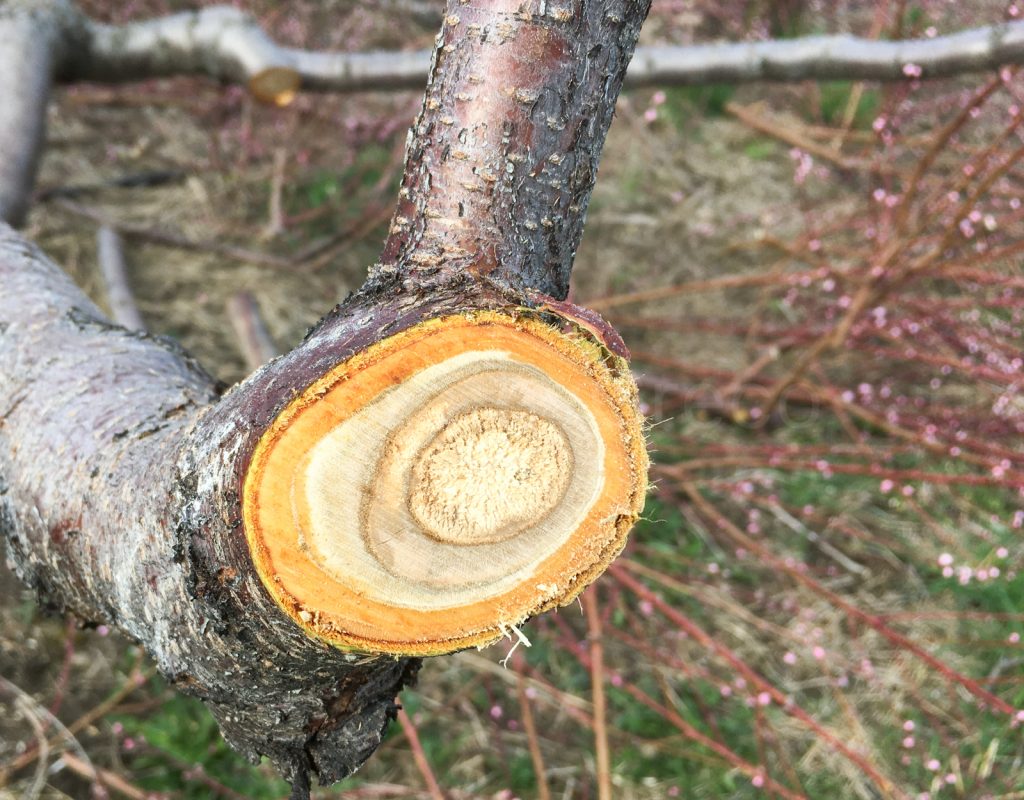
We are all in a season of being collectively pruned. Thanks to COVID-19, we’ve lost our communities and our freedom to go where we want, when we want, accompanied by whomever we want. Schools and universities have closed. Vacations and wedding ceremonies are being cancelled. Nearly 10 million people were laid off or furloughed in March alone. Many of us have lost friends and family members to the virus. It all feels incredibly harsh.
And yet, I can’t help but wonder if this pruning—though painful—might ultimately allow us to stay healthy and bear more fruit. I suppose that depends on how we respond. Fruit trees don’t have much choice. They can’t run away, act up, or otherwise avoid the arborist’s shears. We can—and often do. But in this season, our choices are limited.
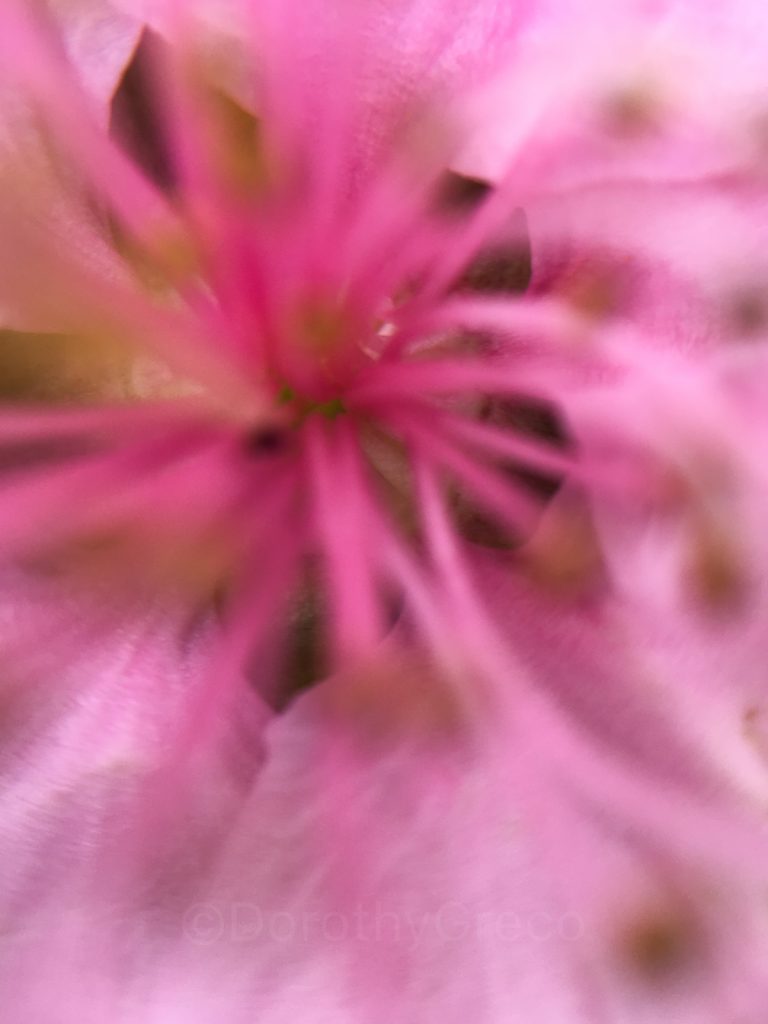
In terms of possible responses, submission sits halfway between active resistance and passive resignation. Though this might be counterintuitive, submission is active. It requires engagement. Keeping our hearts open is work. When we submit in humility, we acknowledge someone else knows more than we do. We submit to the surgeon’s knife in the hope of defeating cancer. We submit to the physical therapist’s seemingly harsh demands in the hope of recovering from an injury. Submitting is rarely enjoyable and often quite painful. (I asked the arborist if pruning hurt the trees. I wish I had focused the camera on his face in that moment. I suppose imagining that one is hurting trees would be the stuff of nightmares for an arborist.)
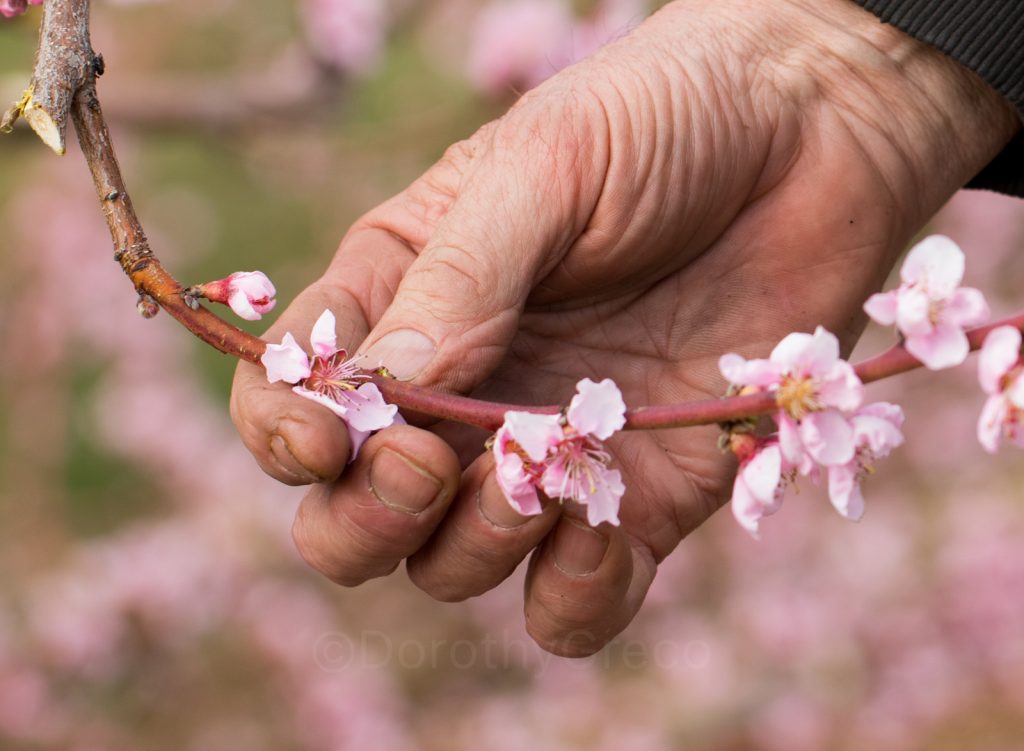
In this season, for me, submission means social distancing—which is hard because I’m a hugger. It means restricting my movement—which is hard because I’m an American. It also means a significant loss of work, no gym workouts (an essential component of physical health given my fibromyalgia), doing counseling on Zoom (not easy for any of us who are visual/kinesthetic types), and not having friends over for dinner. In other words, there’s a lot of loss. For all of us.
Because this is new territory, we’re struggling to trust those in authority. Unlike the surgeon who has successfully done this procedure a thousand times, unlike the physical therapist who always gets good results from the exercises, we just don’t know if all of this sacrifice will pay off. We can’t tell if submitting will help flatten the curve and lower the mortality rate or if this virus will trump all of our efforts.
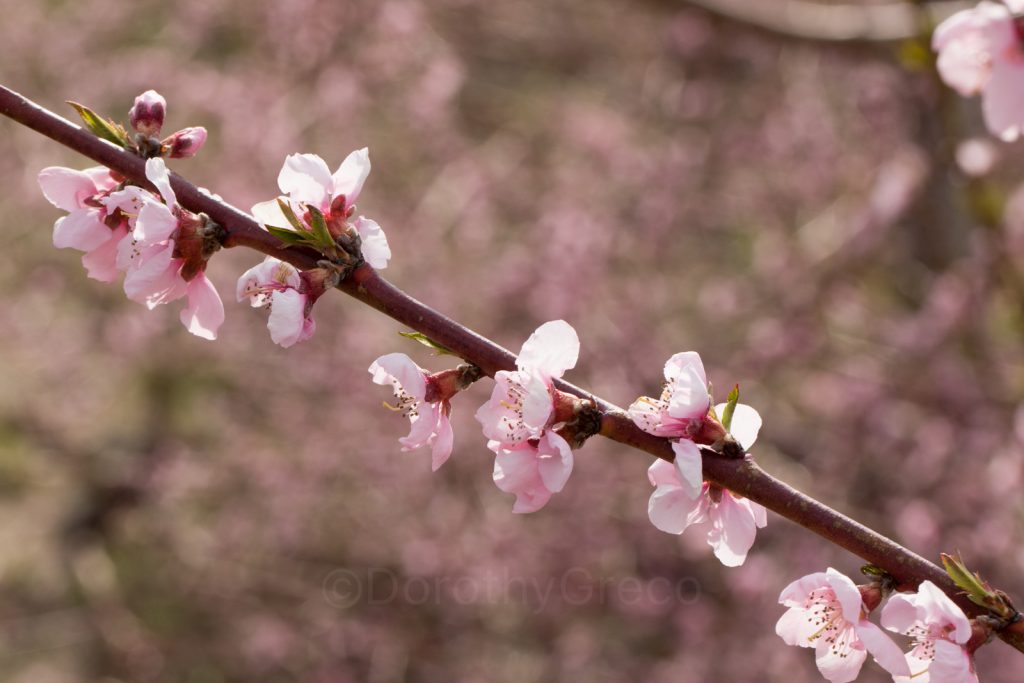
I’m not a policy maker and I have no intention of storming the state house with a gun. (Not to mention that the only variety of weapon we own are orange Nerf guns which would not have the same intimidation factor.) I can be on the lookout for folks who are in a more desperate position than we are and do what I can to help. I can choose kindness and refuse bitterness or harshness. I can, and do, pray: for the policy makers, for those serving on the front lines—including grocery store workers, bus drivers, and truckers hauling food and supplies from state to state.
And I can hope. Which is perhaps the best weapon any of us have in this season.
Hope for changed systems. Hope for a cure. Hope for the curves to flatten. Hope for humankind to recognize how many of our choices are self-centered and that we can’t control everything. In fact, perhaps one of the most critical lessons we might learn in this season is what we can and can’t control. And remember, no matter how it feels, we’re never truly powerless because we can always control our response to any situation.
However many weeks (or months) remain in this unprecedented season, I hope I can learn what it means to submit in faith and accept the limits of my power. I wait in eager anticipation of the fruits we might collectively bear as a result of this pruning.
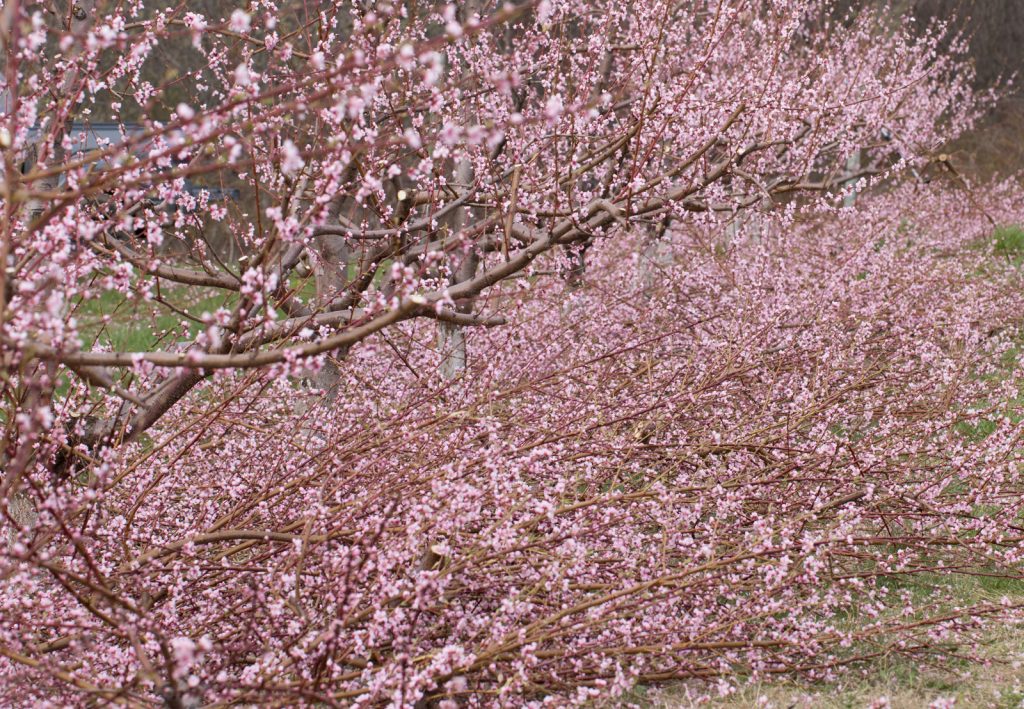
Stay well. Love hard. Be kind.
(Please consider signing up for my monthly newsletter. I usually give away one new book each month. Link on home page. You can also see more of my photography on this link.)
Photos shot at Carlson Orchards, Harvard, MA.
Pin it!
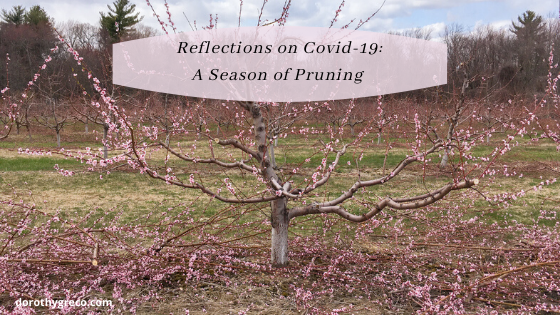
Dorothy, I appreciate your perspective and your voice.* “Hope – the best weapon of all.” I have been thinking a lot about hope. I wasn’t really thinking about how it related to the losses that we have all experienced and will continue to experience during this season. I don’t want to cave under the weight of all the loss and I see that Hope has been my greatest weapon or tool. Thanks for continuing to write and encourage us.
*Yours is a voice I trust. The messages surrounding our current circumstances come at us like an endless supply from a firehose. We need to discern the who and what we will read and listen to, otherwise we will sacrifice our mental health.
Thanks for stopping by Catherine. I appreciate your support. And yes, I too struggle to know who to trust in this season. There’s an awful lot of sketchy agendas out there. Stay well.
Wonderfully put but I feel that is another agenda behind the scenes beginning to take place from a very dark source. My wife is a retired epidemiologist from the state and was one of the directors. The last crisis on which she was working on along with the CDC was the Zika virus.
Hi John. Im not sure what you are referring to but I would say evil with a capital E is behind this virus. (I tend to resist conspiracy theories because I think they often blame people without enough hard evidence.)